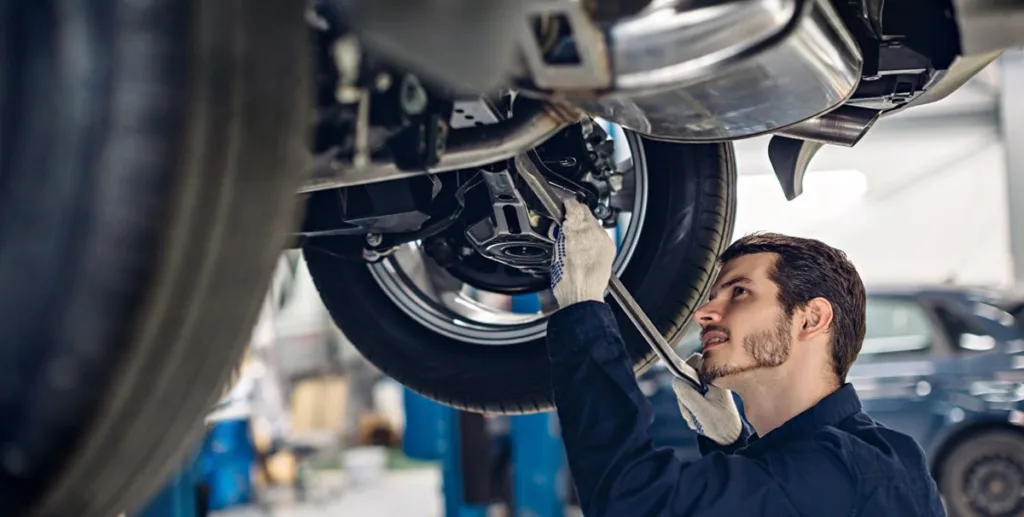All Categories
Featured
Responsible for synchronizing the turning of the crankshaft and camshaft, the timing belt makes sure the engine's shutoffs open and close at the right times during the combustion procedure. If the timing belt fails, it can result in serious engine damages.
What Is a Timing Belt? The timing belt is a long, toothed rubber or composite belt that links the crankshaft to the camshaft(s) in an internal burning engine. Its job is to keep the engine's valves and pistons in sync, guaranteeing the engine runs efficiently. The timing belt likewise controls other crucial engine features like the water pump and the power steering pump, relying on the lorry.
![]()
Without the proper timing, the engine's shutoffs and pistons can collide, leading to extensive and costly damage. Consequently, replacing the timing belt on time is one of the best ways to ensure your engine operates at its finest and prevent pricey repair work.
Why Timing Belt Substitute Issues. Preventing Catastrophic Engine Damage: The most considerable risk of not replacing a used timing belt is engine failing. If the timing belt breaks while the engine is running, the camshaft and crankshaft can come to be misaligned, creating the shutoffs and pistons to clash. This can cause curved shutoffs, harmed pistons, or perhaps a damaged engine. Changing the timing belt at the suggested intervals is the most effective way to stop such disastrous damages, saving you from the tension and high expense of engine repair services or replacement.
![]()
Preserving Engine Efficiency: A timing belt that's in good condition makes certain that all engine parts function in perfect harmony. If the timing belt is put on or stretched, it can cause the engine to lose power, experience harsh idling, or struggle to start. By replacing the timing belt on a regular basis, you can maintain your engine running at peak effectiveness, which assists maintain optimum fuel economic climate and efficiency.
Avoiding Unexpected Malfunctions: A damaged timing belt can cause your engine to quit quickly, possibly leaving you stranded in the center of a journey. By replacing your timing belt on schedule, you lessen the risk of abrupt malfunctions that might leave you in a inconvenient or dangerous situation. Routine upkeep lowers the possibilities of experiencing these type of disturbances, assisting you remain on the roadway much longer without fretting about your engine stopping working.
Affordable Upkeep: Timing belt substitute is much more economical than repairing or replacing an engine that's been harmed because of a timing belt failing. While the expense of changing the timing belt might vary depending on your vehicle and its location, it is even more economical than the expenses related to significant engine fixings or replacements. Changing your timing belt at the recommended periods can conserve you a considerable quantity of cash over the long term by stopping damage to your engine.
When Should You Replace Your Timing Belt? The timing belt does not last permanently, and many suppliers recommend replacing it in between 60,000 and 100,000 miles. Nevertheless, the specific timing depends on your automobile's make, model, and driving conditions, so it's important to examine your proprietor's handbook for particular guidance.
Signs that your timing belt may need focus consist of uncommon engine sounds (such as a piercing whining or ticking noise), difficulty starting the engine, or a decline in engine efficiency. It's important to have the timing belt checked by a professional mechanic. if you observe any of these indicators.
![]()
Conclusion. The timing belt is a tiny however vital component of your engine, and routine substitute is essential to preserving your car's efficiency and preventing pricey damages. By remaining on top of timing belt upkeep, you'll ensure your engine operates successfully, stay clear of unanticipated failures, and protect your automobile from major repairs. Watch on your automobile's recommended timing belt substitute routine, and always talk to a relied on mechanic to keep your engine running efficiently for years ahead.
What Is a Timing Belt? The timing belt is a long, toothed rubber or composite belt that links the crankshaft to the camshaft(s) in an internal burning engine. Its job is to keep the engine's valves and pistons in sync, guaranteeing the engine runs efficiently. The timing belt likewise controls other crucial engine features like the water pump and the power steering pump, relying on the lorry.

Without the proper timing, the engine's shutoffs and pistons can collide, leading to extensive and costly damage. Consequently, replacing the timing belt on time is one of the best ways to ensure your engine operates at its finest and prevent pricey repair work.
Why Timing Belt Substitute Issues. Preventing Catastrophic Engine Damage: The most considerable risk of not replacing a used timing belt is engine failing. If the timing belt breaks while the engine is running, the camshaft and crankshaft can come to be misaligned, creating the shutoffs and pistons to clash. This can cause curved shutoffs, harmed pistons, or perhaps a damaged engine. Changing the timing belt at the suggested intervals is the most effective way to stop such disastrous damages, saving you from the tension and high expense of engine repair services or replacement.

Preserving Engine Efficiency: A timing belt that's in good condition makes certain that all engine parts function in perfect harmony. If the timing belt is put on or stretched, it can cause the engine to lose power, experience harsh idling, or struggle to start. By replacing the timing belt on a regular basis, you can maintain your engine running at peak effectiveness, which assists maintain optimum fuel economic climate and efficiency.
Avoiding Unexpected Malfunctions: A damaged timing belt can cause your engine to quit quickly, possibly leaving you stranded in the center of a journey. By replacing your timing belt on schedule, you lessen the risk of abrupt malfunctions that might leave you in a inconvenient or dangerous situation. Routine upkeep lowers the possibilities of experiencing these type of disturbances, assisting you remain on the roadway much longer without fretting about your engine stopping working.
Affordable Upkeep: Timing belt substitute is much more economical than repairing or replacing an engine that's been harmed because of a timing belt failing. While the expense of changing the timing belt might vary depending on your vehicle and its location, it is even more economical than the expenses related to significant engine fixings or replacements. Changing your timing belt at the recommended periods can conserve you a considerable quantity of cash over the long term by stopping damage to your engine.
When Should You Replace Your Timing Belt? The timing belt does not last permanently, and many suppliers recommend replacing it in between 60,000 and 100,000 miles. Nevertheless, the specific timing depends on your automobile's make, model, and driving conditions, so it's important to examine your proprietor's handbook for particular guidance.
Signs that your timing belt may need focus consist of uncommon engine sounds (such as a piercing whining or ticking noise), difficulty starting the engine, or a decline in engine efficiency. It's important to have the timing belt checked by a professional mechanic. if you observe any of these indicators.

Conclusion. The timing belt is a tiny however vital component of your engine, and routine substitute is essential to preserving your car's efficiency and preventing pricey damages. By remaining on top of timing belt upkeep, you'll ensure your engine operates successfully, stay clear of unanticipated failures, and protect your automobile from major repairs. Watch on your automobile's recommended timing belt substitute routine, and always talk to a relied on mechanic to keep your engine running efficiently for years ahead.
Latest Posts
Stylish, Sturdy Ceramic Tile Floor Covering for each Room
Published Apr 19, 25
1 min read
Comprehensive Auto Repairs at Montclare Auto Repair - Check It Out
Published Apr 19, 25
2 min read
Streamline Your Finances with WyHy's Coinstar Solution
Published Apr 19, 25
1 min read